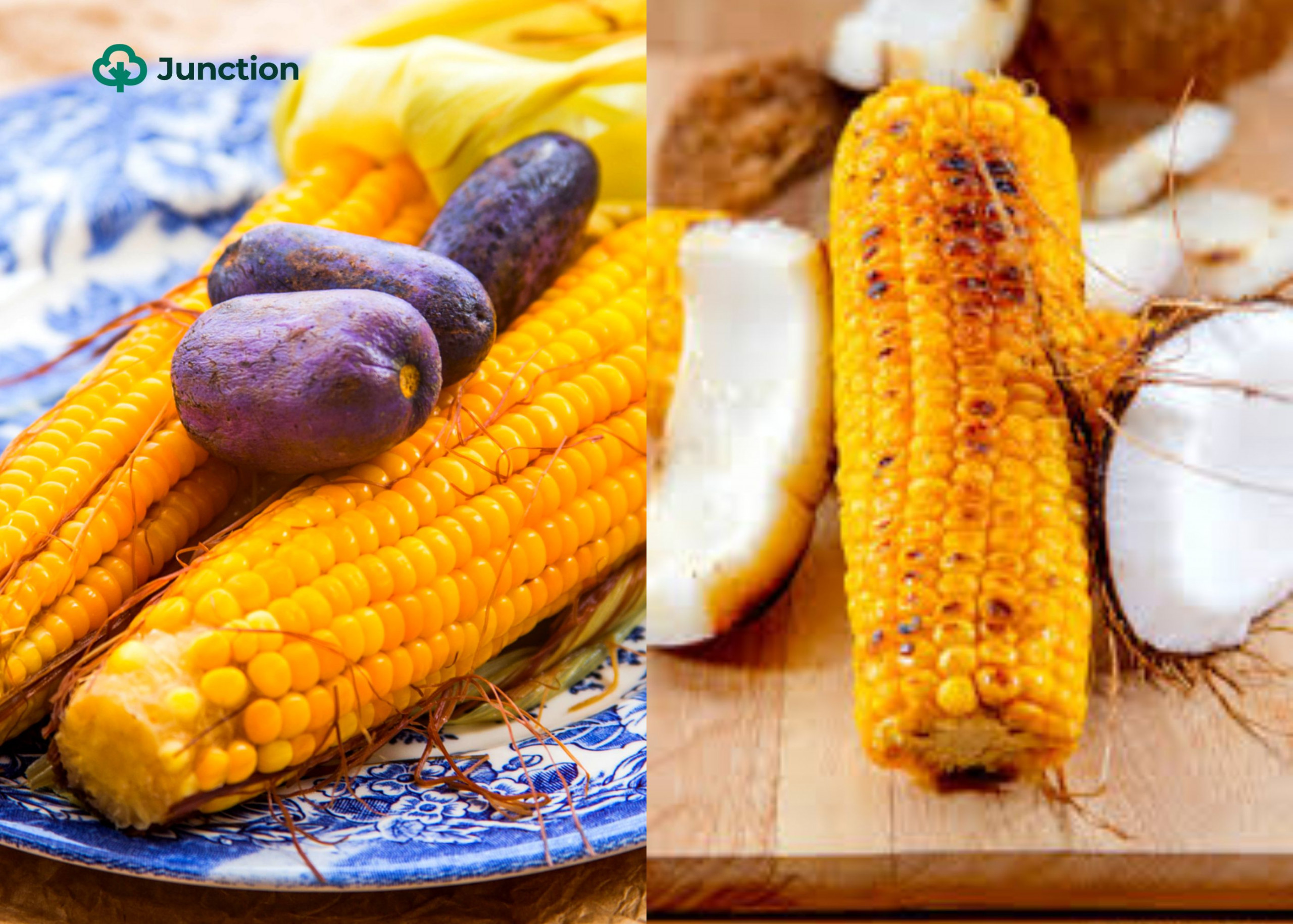As the familiar aroma of roasted and boiled corn fills Nigerian streets in its season, a timeless debate resurfaces among the snack’s enthusiasts: what’s the ultimate pairing for this staple? Is it the creamy, seasonal African pear (ube) or the sweet, readily available coconut?
Both have carved out a special place in the hearts (and stomachs) of Nigerians, particularly in Nigeria’s southern and eastern regions where ube is widely cultivated.
However, a closer look reveals distinct characteristics in terms of nutritional value.
African Pear (Ube)
The combination of corn and African pear, known locally as ube, is a true sign of the rainy season, typically running from March to October in the country. This limited seasonal window makes corn and ube a highly anticipated and cherished snack.
Ube’s soft, buttery flesh and flavour create a unique, creamy contrast to the corn’s sweetness and chewiness. Street vendors, with the aid of locally improvised coal grills made from discarded pans and some wire meshes, often warm the ube alongside the roasting or boiling corn.
Coconut
On the other hand, corn paired with coconut offers a different but equally compelling experience. The sweet, juicy, and unique texture of coconut involves a more crunchy contrast to the African pear, with the corn combination.
However, unlike ube, coconuts are readily available year-round across Nigeria, particularly in coastal areas like Lagos.
This consistent availability makes corn and coconut a reliable and popular choice, regardless of the season, appealing to those who prefer a straightforward snack.
Nutritional showdown: Which pairing packs more punch?
Interestingly, beyond taste and tradition, an expert analysis of the nutritional profiles offers insights into which combination might be ‘better’ for your health.
African Pear (Ube): A Heart-Healthy Powerhouse
Ube stands out for its remarkably rich nutritional profile, particularly its healthy fat content.
“Ube is an exceptional fruit, especially for its healthy fat content,” explains Dr. Ngozi Okoro, a Lagos-based nutritionist. “The pear is rich in monounsaturated fatty acids, similar to what you’d find in avocados, which are beneficial for cardiovascular health. This makes the corn and ube pairing not just delicious but also more satiating and heart-friendly.”
In addition to healthy fats, ube is an excellent source of dietary fibre, Vitamin C for immunity, Vitamin A for vision, and essential minerals like potassium and calcium. Altogether, this combination creates a nutrient-dense snack that offers sustained energy and promotes overall well-being.
Coconut: A Mineral-Rich Energiser
Fresh coconut brings its own set of nutritional benefits to the table. It’s high in fat, primarily saturated fats, but a significant portion of these are medium-chain fatty acids (MCFAs).
“While higher in saturated fats, the MCFAs in coconut are metabolised differently and can provide a quick source of energy,” notes Dr. Emeka Agujiofor, a public health nutrition expert in Abuja. “Coconut also stands out for its impressive mineral content, especially manganese and copper, which are crucial for various bodily functions and antioxidant defences.”
Additionally, coconut contributes fibre and a modest amount of plant-based protein.
The verdict
From a purely nutritional standpoint, the corn and African pear (ube) pairing holds a slight advantage.
The prevalence of heart-healthy monounsaturated fats in ube, combined with its broader spectrum of vitamins and minerals, offers a more comprehensive and beneficial nutrient profile. Its high fibre and fat content also contribute to feeling fuller for longer.
Nonetheless, the ‘best’ pairing ultimately comes down to personal preference and, crucially, the season.
During the rainy months, the highly anticipated corn and ube combination is a clear favourite, celebrated for its unique taste and nutritional benefits. When ube is out of season, the corn and coconut pairing remains a fantastic, readily available, and delicious alternative, providing quick energy and vital minerals.



